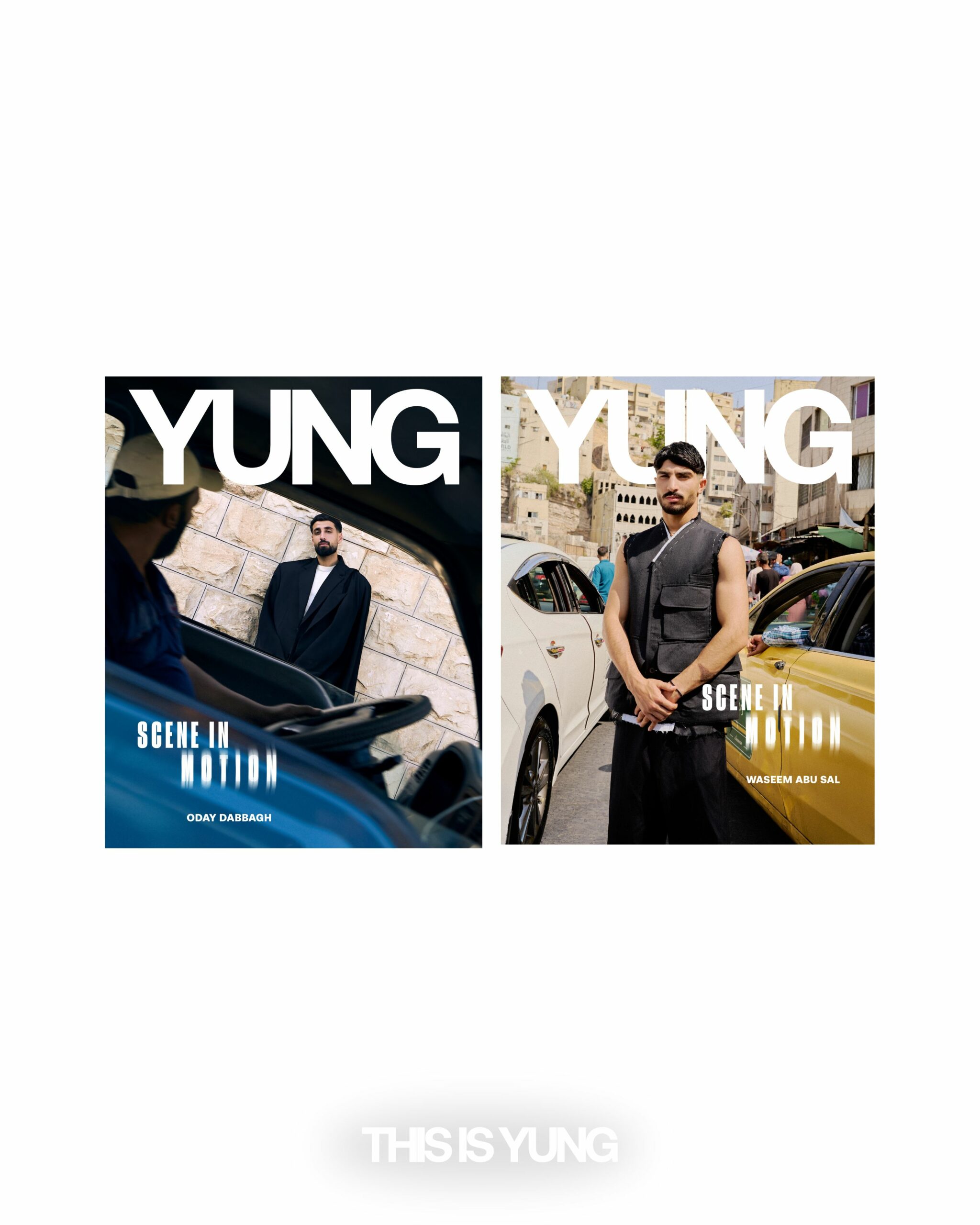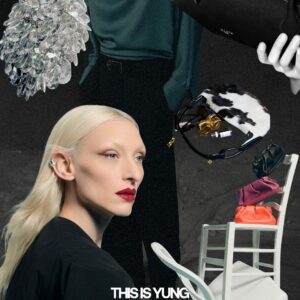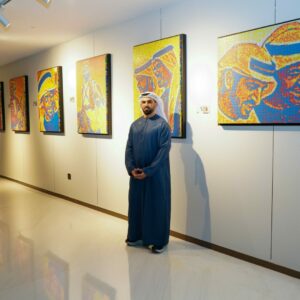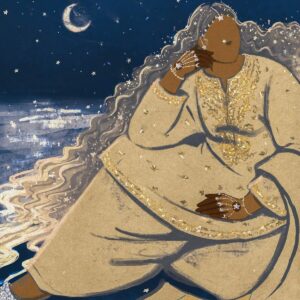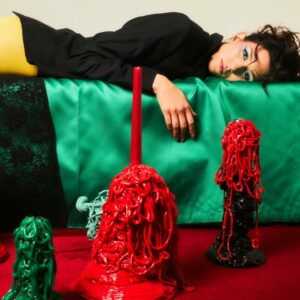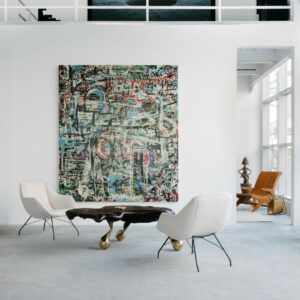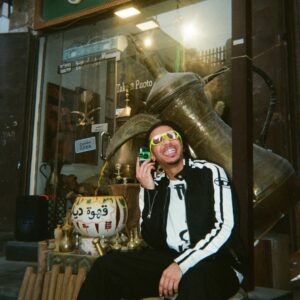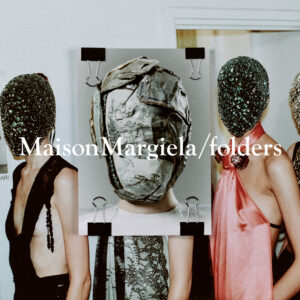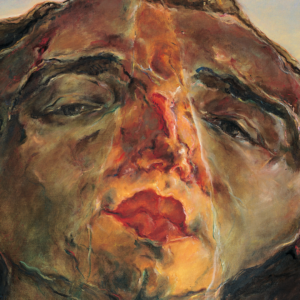YUNG Presents: A conversation between Oday Dabbagh (Instagram) and Waseem Abu Sal (Instagram). Two athletes, one conversation across time zones, borders, weight classes, and stadiums. From the streets of Jerusalem to Hampden Park. From Ramallah gyms to Olympic rings.
This is what it sounds like when the dream speaks back.

Abu Sal: From Hilal Al-Quds to the Scottish Premiership, you’ve played for seven clubs across four countries. What did each move take away from you—and what did each one give back?
Dabbagh: Every move meant starting over. New country, sometimes a new language, new system. And it’s never easy leaving home so often. I’ve been away from my family since I was 16. So each move in my career has been a driver in my life for, “How do I get further in this sport?”
Abu Sal: I love this sport. I love my family. I LOVE where I come from. How do you show that to the world?
Dabbagh: I just keep showing up. Every single day, I keep showing up. I learned a lot from each of these moves across the world and all the travels in between. Kuwait tested my confidence, and then gave me confidence. Portugal showed me a different style of the game. Belgium tested my patience. And Scotland gave me a chance to prove myself.
Abu Sal: You made history as the first Palestinian to win the Scottish Cup. Winning on European soil, under foreign lights. Did you feel like you were rewriting a story that was never meant to include someone like you?
Dabbagh: Honestly, at that moment I was just proud. Proud to win, proud to help the team. Afterwards, I started to realize how big it was. I didn’t allow myself to think about it before. I just had to focus on the moment. But after… I don’t believe that I am “rewriting a story that was never meant to include us.” We’ve always had the talent, and we’ve always been meant to be here. This is just the beginning. It means the world to me that I can accomplish this for my country. I am just opening the door, and I hope to be an ambassador for other Palestinian players in this way.
Abu Sal: When you lifted that trophy, did it feel like yours? Or did a part of you feel like you were winning it for someone else, somewhere else?
Dabbagh: Nothing is ever “mine.” Everything I do is for my team, for the staff and coaches who support me, for my family, for my fans, and for my country. And… for every Palestinian with a dream. Every single thing I do is for the representation of my people. This was our achievement.
Abu Sal: You’ve become the all-time top scorer for Palestine. What does it cost to carry a country’s dreams on your back?
Dabbagh: It’s the greatest privilege of my life. And it costs everything. I have been away from my family since I was 16. Nearly a decade now. And I will continue to give football my all, and do whatever I possibly can to be the best on and off the pitch, because I believe that is going to give a bit of hope to those I love.
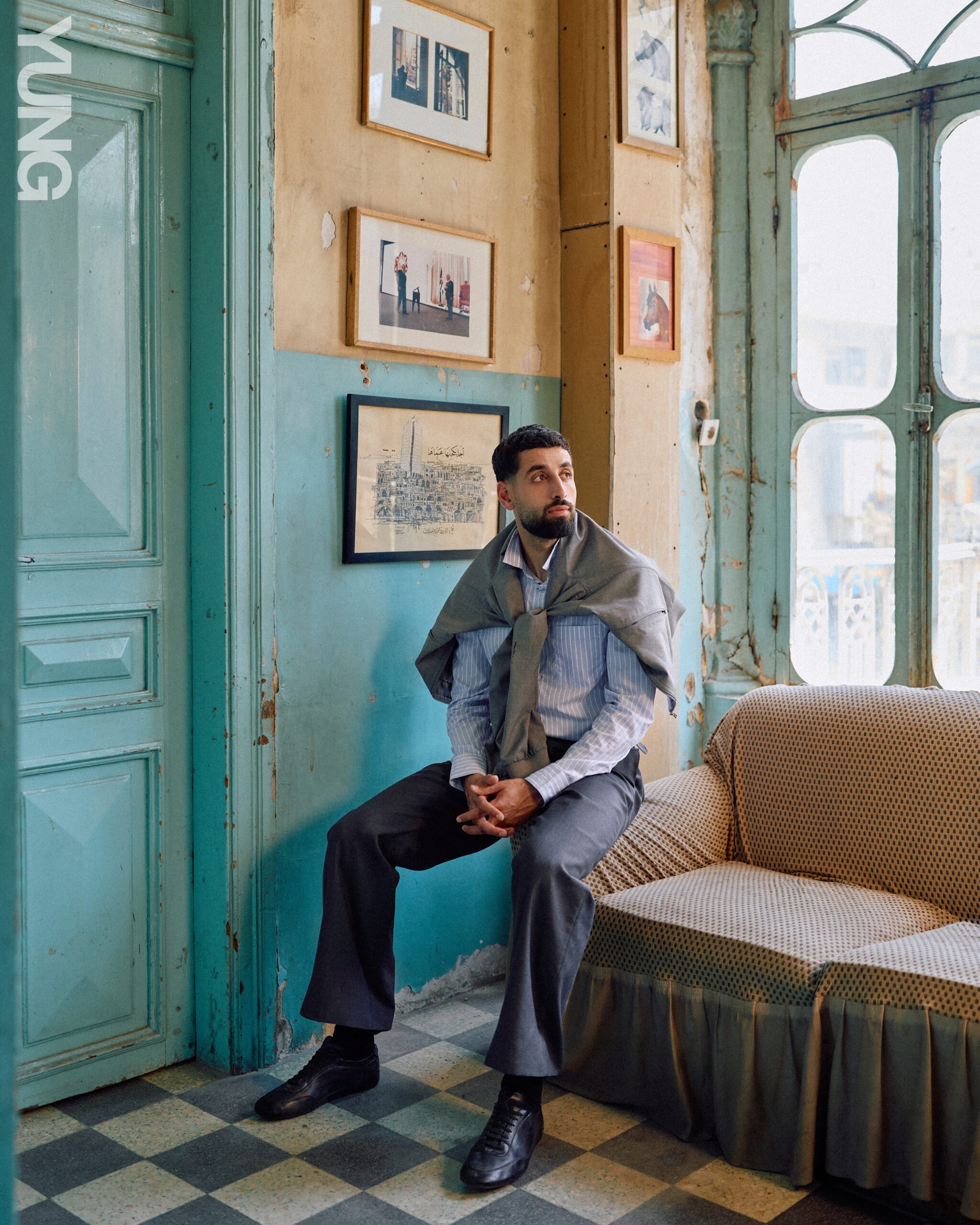
Abu Sal: Jerusalem is your birthplace, but also quite a symbol. When you walk onto a pitch in Europe, do you feel like you’re bringing a piece of that tension with you?
Dabbagh: I focus on my performance. That is how I can represent my homeland.
Abu Sal: You scored 13 goals in 18 games in Kuwait. Most would say you were in your prime. But were you happy then?
Dabbagh: I don’t believe success on the field defines my happiness. My faith and the gift of giving a voice to my people through sport are sources of happiness to me.
Abu Sal: The footballer’s life is a nomadic one. How does a Palestinian man build a sense of home in a world that already tells him he doesn’t belong anywhere?
Dabbagh: Through faith. That never leaves me.
Abu Sal: When did football stop being an escape and start becoming something you had to win?
Dabbagh: I was playing on the streets of Jerusalem as a kid. I always had the dream of going pro. I’ve always had that competitive spirit, so I guess you could say… I always wanted to win.
Abu Sal: Have you ever felt like quitting? What kept you going?
Dabbagh: Never. I’m on a bigger mission.
Abu Sal: You are living the dream of many young Palestinian kids. But if they could sit here with you—what truth would you tell them that no one told you?
Dabbagh: To never quit. Life is going to be tough. But there is power in sport. Show up every day. Give it your absolute all. Be the best version of yourself. We represent through the gift we are given, through our names, through so many different things. And that is how you can make change.
Abu Sal: Ask the question you wish someone had asked you during your hardest season.
Dabbagh: No question really – just knowing that I have support from my loved ones is the most important. And that they know who I am, and that I am grounded in my faith, and dedicated to what I do.

Abu Sal: What’s something only another Palestinian athlete could understand about your journey?
Dabbagh: The duality of chasing personal dreams while making sure to represent the collective.
Abu Sal: Favourite stadium atmosphere?
Dabbagh: Hampden Park during the Scottish Cup final… electric. Unforgettable.
Abu Sal: What does Palestine smell like?
Dabbagh: Like home. Like my mum’s cooking.
Abu Sal: Pre-match ritual?
Dabbagh: Prayer. Always.
Abu Sal: Arabic or English music in the locker room?
Dabbagh: English.
Abu Sal: A question you hate being asked?
Dabbagh: I don’t know. I am unbothered by what others ask or think of me. As long as my family knows who I am, I am good.
Abu Sal: A question you wish someone would ask?
Dabbagh: What is representation? Because I believe it is in my purpose, in this gift I have been given, and I choose to give my all to… every single day. I do my best to give hope through this. And I really believe in the power of sport.
Abu Sal: If football is your first love, what’s your second?
Dabbagh: If we are talking sports? Running… the gym. Just staying active in general.
Here, they switch roles, Oday Dabbagh asking Waseem Abu Sal about his experiences.
Dabbagh: You mentioned that your dream of becoming an Olympian began at age 10. Can you recall a specific moment or experience that ignited this aspiration?
Abu Sal: The first time it really hit me was after I lost my first-ever match at the Palestinian Nationals. It made me believe I could come back stronger and take what is mine. I told myself, if people think this defeat defines me, I’ll show them it fuels me.
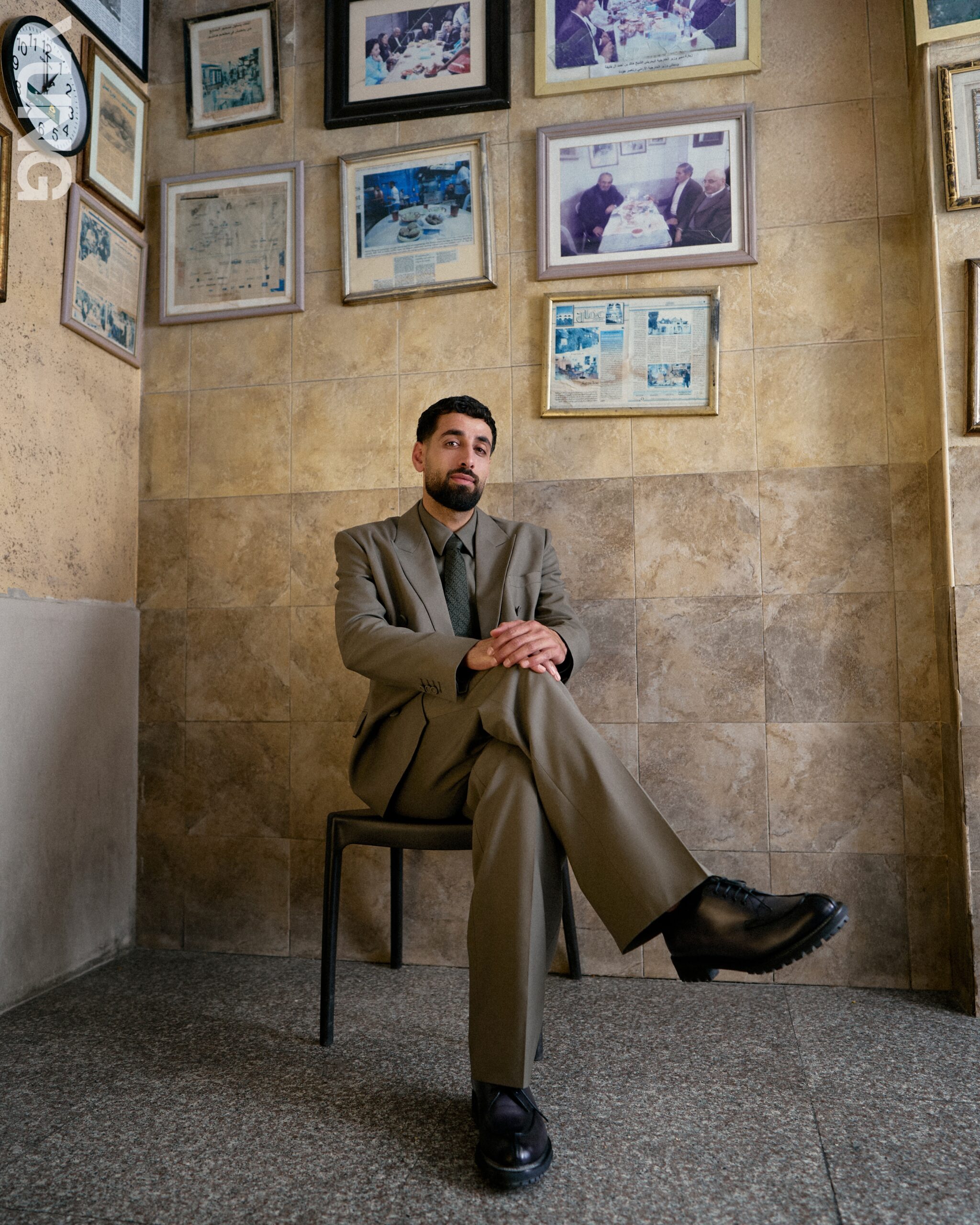
Dabbagh: What did that dream represent to you amidst the backdrop of life in Ramallah?
Abu Sal: It makes me more determined. I think the beauty of winning is in the depth of suffering, the constant struggle and darkness to get there. I say this because that is where you find hope when there is none. And that is what makes victory 100 times better. This is my mentality and my power behind keeping the dream alive.
Dabbagh: When you’re alone—after a fight, or late at night—what thoughts come up most? Is there something you always return to?
Abu Sal: Depends on the result. If I get a medal, I am pretty happy and thinking about the long-term plan, if I have lost, I always sit and talk myself out of that defeat. I always take my defeats as a man. I kill any negative thought inside my mind, remind myself of my training and capabilities… and just basically recharge with good sleep, wake up and re-do everything the next day. I always, ALWAYS picture greatness ahead of me.
Dabbagh: Being the first Palestinian boxer at the Olympics carries immense symbolic weight. How do you reconcile the personal pressures of competition with the broader expectations of representing a nation under occupation?
Abu Sal: We’re taught to block out outside expectations, though I am not saying that is easy. During the Olympics, I entered a different headspace. I got myself into a zone thinking and remembering my brothers and sisters whom we have lost. I wanted to fight for my people. I wanted to show a kid in Gaza he can be there one day, revive hope for a girl who lost her family… I had very mixed and rushed feelings before that fight. I just wanted to make my people proud, and tell them their voice is heard.
For more stories of culture and representation, like this piece on Oday Dabbagh and Waseem Abu Sal, stay across our Instagram and visit our dedicated archives.
